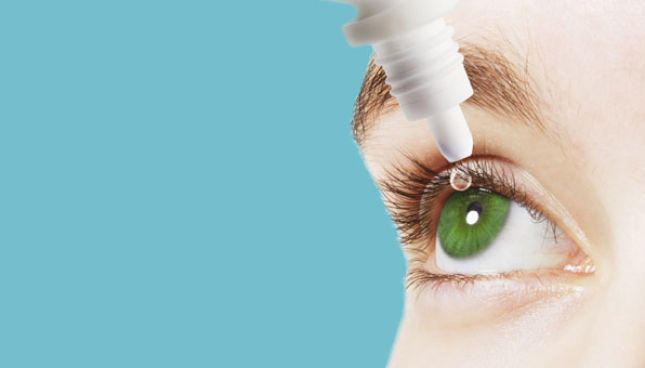Pediatrics in Andalusia: Compassionate Care for Expanding Households
Is Refractive Surgery Right for You? Aspects to Take Into Consideration for Better Eyecare
In the realm of eye treatment, the choice to undergo refractive surgical treatment is a weighty one that demands thoughtful factor to consider. As people seek clarity and flexibility from the restraints of restorative lenses, numerous factors enter play when figuring out the viability of such a treatment. From the intricacies of one's ocular health to the intricacies of individual expectations and everyday routines, each facet holds value in the broader landscape of refractive surgery candidateship. By evaluating these crucial elements with care and accuracy, a more clear path towards notified decision-making emerges.
Eye Health And Wellness Examination
When taking into consideration refractive surgery, a comprehensive eye wellness analysis is vital to assess the suitability of the procedure for each and every person. neurologist andalusia. This analysis entails a collection of tests and exams carried out by an eye care specialist to figure out the overall health of the eyes, the visibility of any type of hidden conditions, and the security of the refractive error
Throughout the assessment, numerous aspects are taken into consideration, such as the person's case history, existing eye prescription, corneal thickness, student size, and tear movie high quality. These assessments assist to identify any kind of contraindications to refractive surgery, such as corneal problems, cataracts, or untreated eye infections. Furthermore, the evaluation aids to handle individual expectations regarding the prospective end results of the surgical treatment based upon their distinct eye characteristics.
Ultimately, the eye health and wellness examination is crucial in ensuring the security and performance of refractive surgical procedure, as it provides valuable insights into the individual's eye health status and assists figure out one of the most ideal therapy options for achieving ideal visual end results. (eye doctors in andalusia)
Way Of Living Assessment
An extensive lifestyle evaluation is essential in establishing the viability of refractive surgery for an individual's visual adjustment needs. Way of life aspects such as line of work, hobbies, and daily activities play an essential role in the decision-making procedure pertaining to refractive surgical procedure. For example, individuals with careers that entail a high degree of exercise or direct exposure to environmental elements may have various aesthetic requirements contrasted to those with less active desk jobs. Understanding just how a person's lifestyle might impact their vision post-surgery is vital for managing assumptions and guaranteeing optimal end results.
Moreover, lifestyle behaviors such as sports participation, outside tasks, or even skincare routines can affect the healing process and overall success of refractive surgical treatment. By performing a detailed lifestyle analysis, eye care specialists can customize their suggestions and treatment plans to satisfy the unique demands of each individual, inevitably leading to improved visual outcomes and satisfaction.
Assumption Placement

Establishing realistic expectations entails comprehensive pre-operative discussions in between the eye doctor and the patient. The doctor needs to transparently interact the possible risks, advantages, and limitations of the procedure (neurologist andalusia). Individuals require to comprehend that while many individuals attain 20/20 vision or much better complying with refractive surgical treatment, some might still call for glasses for sure activities like analysis or driving at evening. Managing these assumptions helps protect against dissatisfaction and frustration post-surgery, bring about a more favorable overall experience for the person.
Risk Analysis

Aspects that may enhance the danger of difficulties include age, particular clinical problems like autoimmune conditions, unstable vision prescription, slim corneas, and unrealistic client expectations. In addition, choosing a experienced and proficient surgeon, complying with pre and post-operative care guidelines vigilantly, and revealing any type of pertinent clinical background can assist mitigate threats.
To lessen the chance of complications, eye doctors perform detailed pre-operative analyses to recognize any contraindications to surgical treatment. They likewise go over the prospective risks and benefits with people during the appointment procedure. By taking part in open interaction and shared decision-making, both the ophthalmologist and the individual can interact to establish if refractive surgical procedure is the right option based on individual danger profiles and desired results.
Examination Value
Taking into consideration the critical duty of educated decision-making in assessing threats and possible difficulties in refractive surgical treatment, the consultation procedure holds considerable value in leading patients towards optimal outcomes. During the consultation, the ophthalmologist reviews the patient's eye health, refractive mistakes, and total suitability for surgery. This initial evaluation is crucial in figuring out the most ideal treatment for each and every person, taking into consideration elements such as corneal density, pupil dimension, and existing eye problems.
In addition, the assessment acts as an opportunity for patients to discuss their expectations, worries, and any kind of inquiries they might have regarding the surgery. Clear interaction between the doctor and the person is necessary to guarantee realistic assumptions and a detailed understanding of the possible risks and advantages involved.
In addition, the assessment allows the specialist to explain the various surgical alternatives offered, their respective end results, and the post-operative treatment called for. This thorough discussion encourages individuals to make well-informed choices concerning their eye care, leading to better satisfaction and outcomes post-surgery.
Conclusion
Finally, people thinking about refractive surgery must undertake an extensive eye health evaluation, examine their way of life habits, align their assumptions with prospective end results, evaluate the affiliated risks, and prioritize assessments with eye treatment professionals. These variables play an essential role in determining the suitability of refractive surgery for every person, ensuring optimal end results and contentment with the procedure.
People thinking about refractive surgical treatment often have high assumptions regarding the outcomes, anticipating excellent vision without the need for glasses or contact lenses. While refractive surgery can significantly enhance vision and lower dependency on visual aids, it is critical for patients to comprehend that results may differ based on individual aspects such as the degree of refractive error, corneal thickness, and general eye health.
By engaging in open interaction and shared decision-making, both the eye doctor and the person can function with each other to figure out if refractive surgical procedure is the best option based on individual risk accounts and preferred end results.
Considering the vital duty of educated decision-making in evaluating dangers and potential issues in refractive surgical procedure, the examination process holds substantial value in directing people towards optimum end results. Throughout the examination, the ophthalmologist assesses the person's eye health and wellness, refractive errors, and overall viability for surgery.